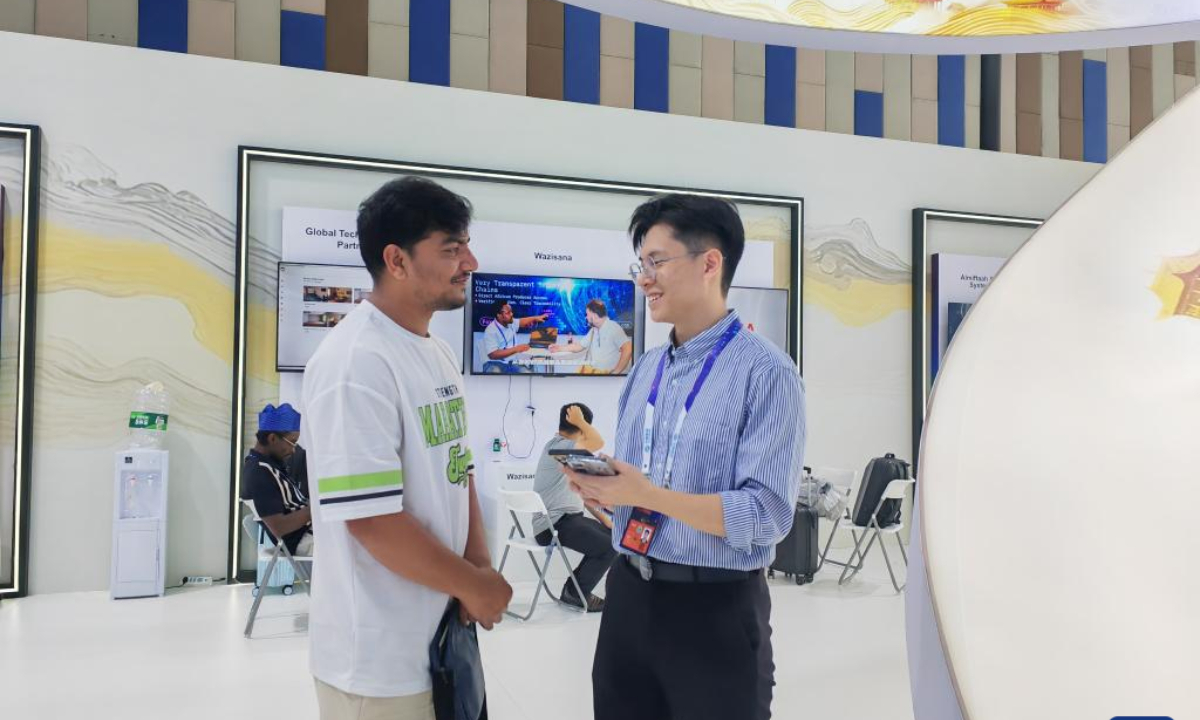Ubaid Ur Rahman (L), a Pakistani PhD student in China, talks with a participant at the 2025 China International Big Data Industry Expo in Guiyang, capital of southwest China’s Guizhou Province, Aug. 30, 2025. (Xinhua/Wu Si)
What does a seamless 5G connection on a bullet train speeding at 300 kilometers per hour represent? For Ubaid Ur Rahman, a Pakistani PhD student in China, it is not just a technological feat — it is the moment a powerful vision crystallized: to drive China-Pakistan tech exchanges between his homeland and China.
Ubaid, majoring in cybersecurity at Huazhong University of Science and Technology in central China’s Hubei Province, first set foot in China in September 2023. “During my research, I found that China is excelling in AI, which was why I chose China,” he said.
The achievement of stable 5G on high-speed trains a few years ago, which Ubaid described as “a dream for us at that time,” was just the beginning of his admiration.
He witnessed the technology’s deep integration into daily life. “In China, 5G is almost ubiquitous; even some toys incorporate 5G technology,” he said.
His learning journey accelerated at the 2025 China International Big Data Industry Expo in Guiyang, capital of southwest China’s Guizhou Province, last month.
There, he engaged with leading global AI companies and witnessed their latest breakthroughs firsthand. “With the accessibility of big data for everyone, AI will be more robust, more credible and more effective,” noted Ubaid, whose expertise lies at the intersection of AI and cybersecurity.
The expo’s host province, Guizhou, is a testament to China’s strategic data vision. Its cool climate and location away from major earthquake zones provide an ideal, naturally air-conditioned, and safe reservoir for the country’s booming data industry.
Beyond the technological marvels, Ubaid saw a gap that needed to be bridged. “The China-Pakistan relationship is great. Our governments are good friends, but now I want to bridge the gap between the companies that are doing the actual work,” he said.
With Pakistan showing keen interest in Web 3.0 and blockchain, Ubaid told Xinhua that his goal in coming to China was to seek opportunities for both his personal growth and the benefit of his country.
“I want to take the experiences and technologies learned in China back to Pakistan. I hope to bridge the gap between Pakistan and China. I desire to be a part of China’s growing industries in both culture and science and technology,” he added.
